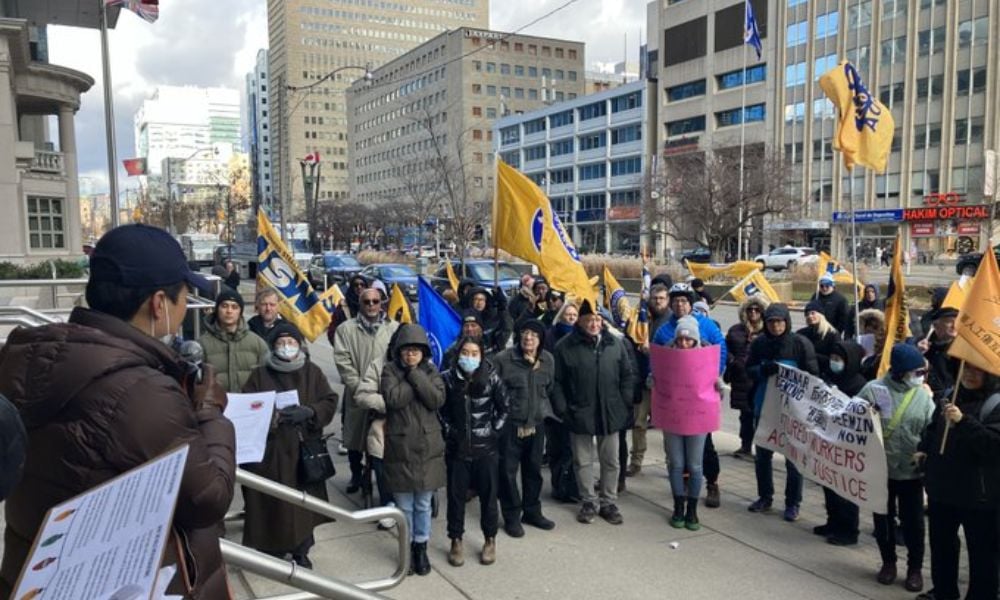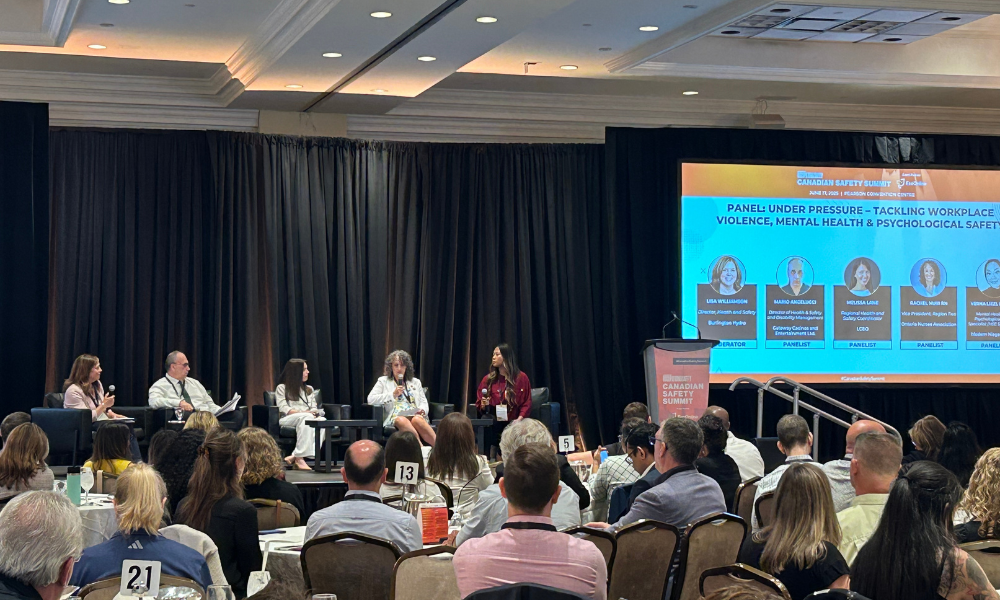Wage loss benefits, chronic mental stress, and practice of deeming top list of changes

Rallies demanding the Workplace Safety and Insurance Board implement New Year’s resolutions took place across Ontario on Monday. They were organized by the Ontario Network of Injured Workers Group (ONIWG) and its president, Janet Paterson, has a holiday message for the WSIB.
“You need to start doing what you're supposed to be doing, because it's hurting workers, and it's hurting families,” says Paterson.
Unifor is in attendance at the Injured Workers Day of Action in Toronto, protesting the provincial government and WSIB decisions that divert increasing amounts of injured workers' funds to corporations via premium reductions and rebates. @ONIWG #WorkersCompIsARight pic.twitter.com/zCHeCmmHpW
— Unifor (@UniforTheUnion) December 11, 2023
Paterson takes issue with the WSIB being the title sponsor for a New Year’s Eve bash in London, Ontario, following an announcement earlier this year that the WSIB headquarters will be moving to that city.
“You think that it's important to put the money out for a New Year's Eve party, but you still don't take care of your own," alleges Paterson.
WSIB sent a statement to Canadian Occupational Safety responding to the rallies and demands. It says it has been delivering on its mandate to help sick and hurt workers.
“Last year we paid over $2.5 billion to help people recover with peace of mind that they won’t miss a mortgage payment and can put food on the table,” reads the statement. “Most importantly, we’ve been able to help almost 9 out of 10 people who miss work because of an injury to safely return to their job within 3 months.”
The ONIWG has three key demands it wants to see the WSIB resolve in 2024.
- Increase the wage loss benefits from 85% to 90%
- End the practice of deeming.
- Make sure workers claiming chronic mental stress are properly compensated.
Wage loss benefits
The wage loss benefits in Ontario used to be 90 percent but were decreased to 85 percent in the 1990s. In 2022, the Ontario’s Progressive Conservative government said it would explore increasing it back to 90 percent, which would bring Ontario in line with six other provinces. That has not happened.
“The provincial government says that they have workers’ backs. Yet when it comes time for the government to step up and increase the wage-loss rate to 90%, the government leaves us high and dry,” says Paterson. “Promise made, promise broken.”
The practice of deeming
The practice of deeming was in the spotlight in late 2022 when NDP MPP Wayne Gates, introduced Private Members Bill 57, the Respecting Injured Workers Act, which aims to end deeming.
If a worker makes $25 an hour and gets injured on the job, instead of paying that worker $25 an hour, the WSIB can decide that while the worker can’t return to their old job, they can be deemed capable of working a minimum wage job that pays $16 an hour. That amount is then deducted from the worker’s benefit, and in this example, they would be left with a benefit of just $9 an hour.
“With deeming, the WSIB dreams up an imaginary job that it says the injured worker could get, then takes away the wages the worker is “deemed” to be earning and leaves the injured worker with little or no compensation benefits, regardless of whether the injured worker is actually employed or not,” says Wayne Harris, ONIWG vice-president. “Deeming is wrong, plain and simple.”
Chronic mental stress
Earlier this year it was revealed the WSIB has denied more than 90 percent of chronic mental stress claims.
“The WSIB needs to practice what they preach and make sure workers claiming entitlement to chronic mental stress are properly compensated,” says Liz Garant, ONIWG vice-president for Southwestern Ontario. “We know the Board is using criteria that is discriminatory and near impossible to meet.”
In a September statement, the WSIB acknowledged the legislative requirements for chronic mental stress claims “can be challenging and complex.” It says it must operate within those legislative boundaries.
“Our claims decisions include a detailed rationale to help people understand why a decision was made and how they can appeal if they are not satisfied. If someone is concerned about a decision or other aspects of their claim, we encourage them to speak with us,” read the WSIB statement at the time.
Changes in 2024
While WSIB may or may not address the demands made by ONIWG, it does say it expects to increase payments in 2024.
“While holding rates steady, we have been able to expand coverage for mental health and certain cancers and provide cost of living increases so that people relying on income protection payments can keep up with inflation. In 2024, we will be adjusting people’s benefit payments with a 4.4% increase,” says the WSIB.
That is one WSIB change for 2024, and another is already lined up for 2025. That is when it expects to open the doors on the new headquarters in London.





